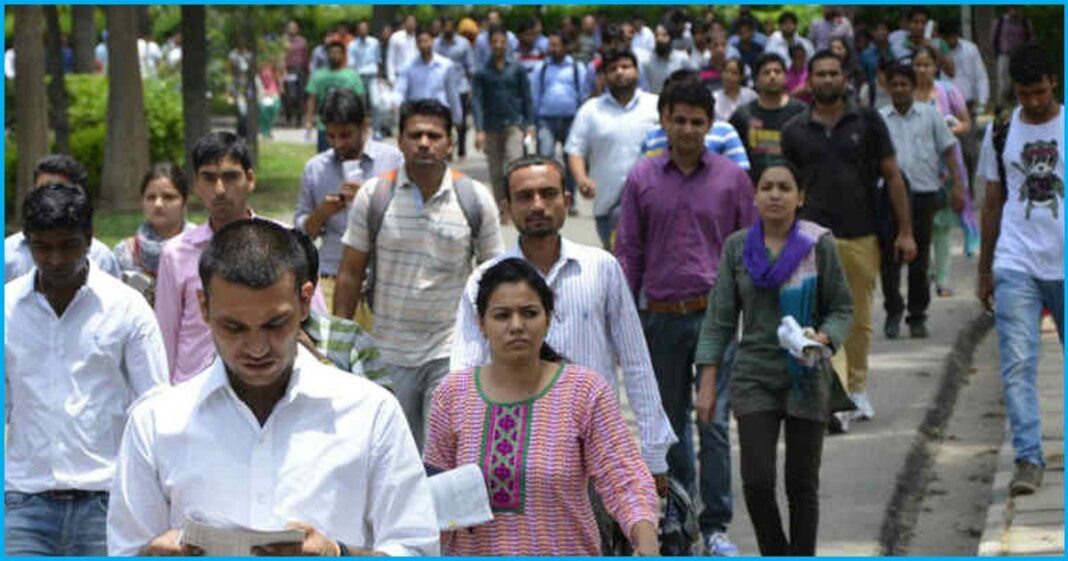By: Hadiqa Naeem
Adolescence is the period when a person changes from a child to a young man and prepares to take on the responsibilities of his life. During adolescence, individuals identify their identities, formulate their goals and aspirations, and shape their futures. Adolescent responsibilities can generally be of different types; Educational responsibility: The main responsibility of the youth is to acquire education. They feel the need to work hard to develop themselves in the light of knowledge and practice. They should give full attention to their academic performance, be engaged in their studies and follow the instructions of their teachers. Academic responsibility in addition to learning new demands awakens new thinking and helps shape a future career.
Strong IT knowledge in youth refers to a comprehensive understanding and proficiency in various aspects of information technology. It includes both theoretical knowledge and practical skills related to computer systems, software, networks, and digital technologies. Here are some key areas of strong IT knowledge in youth: Cyber security Awareness: With the increasing reliance on digital systems, understanding cyber security concepts and practices is crucial. This includes knowledge of online threats, data privacy, secure browsing, and safe online behaviour to protect personal and organizational information. Mobile App Development: Proficiency in mobile app development allows youth to create applications for Smartphones and tablets, Familiarity with programming languages like Java or Swift and mobile app development frameworks equips them to build innovative mobile solutions.
Smart learning in youth refers to the use of technology and innovative approaches to enhance the learning experience and promote effective, personalized, and engaging education. It leverages digital tools, online resources, and adaptive learning techniques to cater to individual learning styles and needs. Here are some key aspects of smart learning in youth: Online Collaboration and Communication: Smart learning enables students to collaborate with peers. teachers, and experts through online platforms, discussion forums, and video conferencing. It promotes communication, idea sharing, and the development of critical thinking and social skills. Positive role Youth in society: Education and knowledge sharing: Youth are the future leaders and educators of society. They actively pursue education and acquire knowledge, which they can then share with others. Whether through tutoring, mentoring, or simply engaging in meaningful discussions, young people contribute to the intellectual growth and development of their peers, fostering a culture of continuous learning.
Environmental responsibilities in youth refer to the actions and behaviors that young people can undertake to contribute positively to the environment and promote
sustainability. Here are some key aspects of the environmental responsibilities of Youth: Cultural preservation and diversity: The youth play a crucial role in preserving cultural heritage and embracing diversity. They celebrate different traditions, languages, and customs, promoting inclusivity and understanding among diverse communities. By appreciating and valuing cultural diversity, they help create a more harmonious and tolerant society. Conservation of Biodiversity: Young people can participate in activities that promote the preservation of biodiversity. This can include planting native trees and plants, creating wildlife-friendly habitats, and supporting conservation efforts in their local communities. Access to a global knowledge base: The internet enables students to access vast amounts of information from around the world, expanding their knowledge beyond the boundaries of their classrooms. Smart learning empowers students to explore diverse perspectives, conduct research, and gain a global understanding of various subjects.
The War Against Corruption: The youth play a crucial role in the war against corruption. Here are some responsibilities that young people can take on: Reporting Corruption: Young individuals can play an important role in reporting instances of corruption they encounter. They should be encouraged to report any form of bribery, embezzlement, or other corrupt practices to the appropriate authorities or through dedicated reporting mechanisms. Whistleblowing can help expose corruption and hold perpetrators accountable. Supporting Anti-Corruption Initiatives: Young people can actively support and collaborate with organizations, NGOs, and governmental bodies that are dedicated to combating corruption. They can volunteer their time, skills, or resources to contribute to anti-corruption efforts, such as promoting transparency, supporting investigations, or advocating for stronger legislation,
Youth possess several unique abilities that can contribute to their success as entrepreneurs. Here are some key entrepreneurial abilities commonly found in young people: Passion and energy: Young entrepreneurs are often driven by a deep passion for their ideas and aspirations. Their enthusiasm and energy can be infectious, attracting like-minded individuals and customers to their ventures. High tolerance for ambiguity: Entrepreneurship is filled with uncertainty and ambiguity. Young entrepreneurs often have a higher tolerance for ambiguity. enabling them to navigate through uncharted territories and make decisions even when complete information is lacking
Strong leadership of youth refers to active involvement Here are some key aspects of strong leadership of youth: Collaboration and networking: Youth leaders understand the importance of collaboration and networking. They seek out partnerships with like-minded organizations, connect with other young leaders, and engage in cross-sectoral collaborations to amplify their impact and learn from others. Organizational and project management: Youth leaders often take charge of organizing and managing initiatives or projects. They develop strategies, set goals, mobilize resources, and coordinate teams. Vision and passion: Youth leaders often possess a strong vision for a better future and are passionate about creating positive change.
They have a clear understanding of the issues they want to address and are driven by a desire to make a difference, Entrepreneurial abilities of youth refer to the skills, qualities, and mindset that enable young people to identify opportunities, take initiative, and create innovative and sustainable business ventures. Here are some key entrepreneurial abilities of youth Opportunity recognition: Young entrepreneurs can identify opportunities in the market or community. They spot unmet needs, trends, or emerging demands, and envision ways to address them through their products or services.
The writer is a student of History. She can be reached at [email protected]








